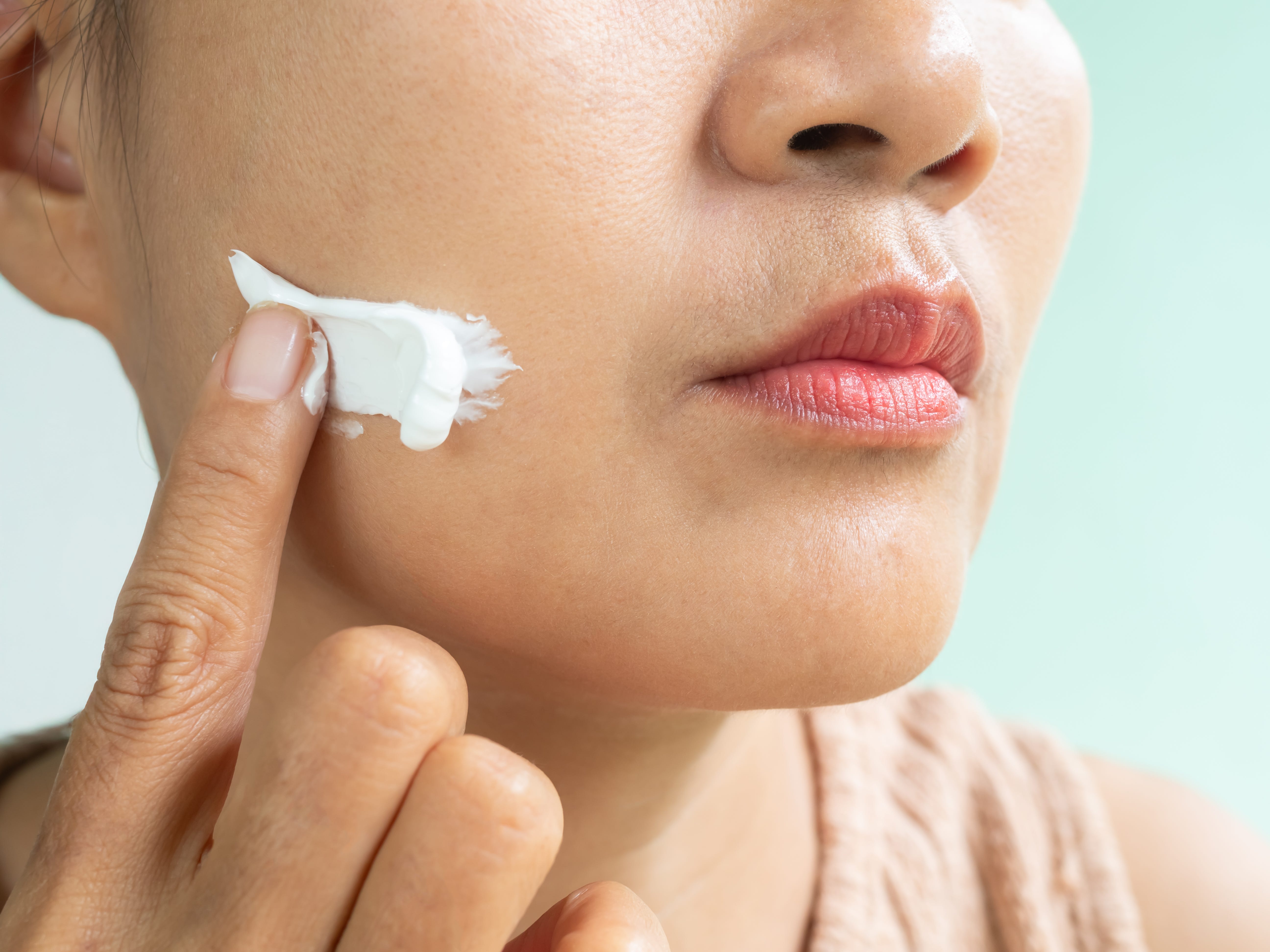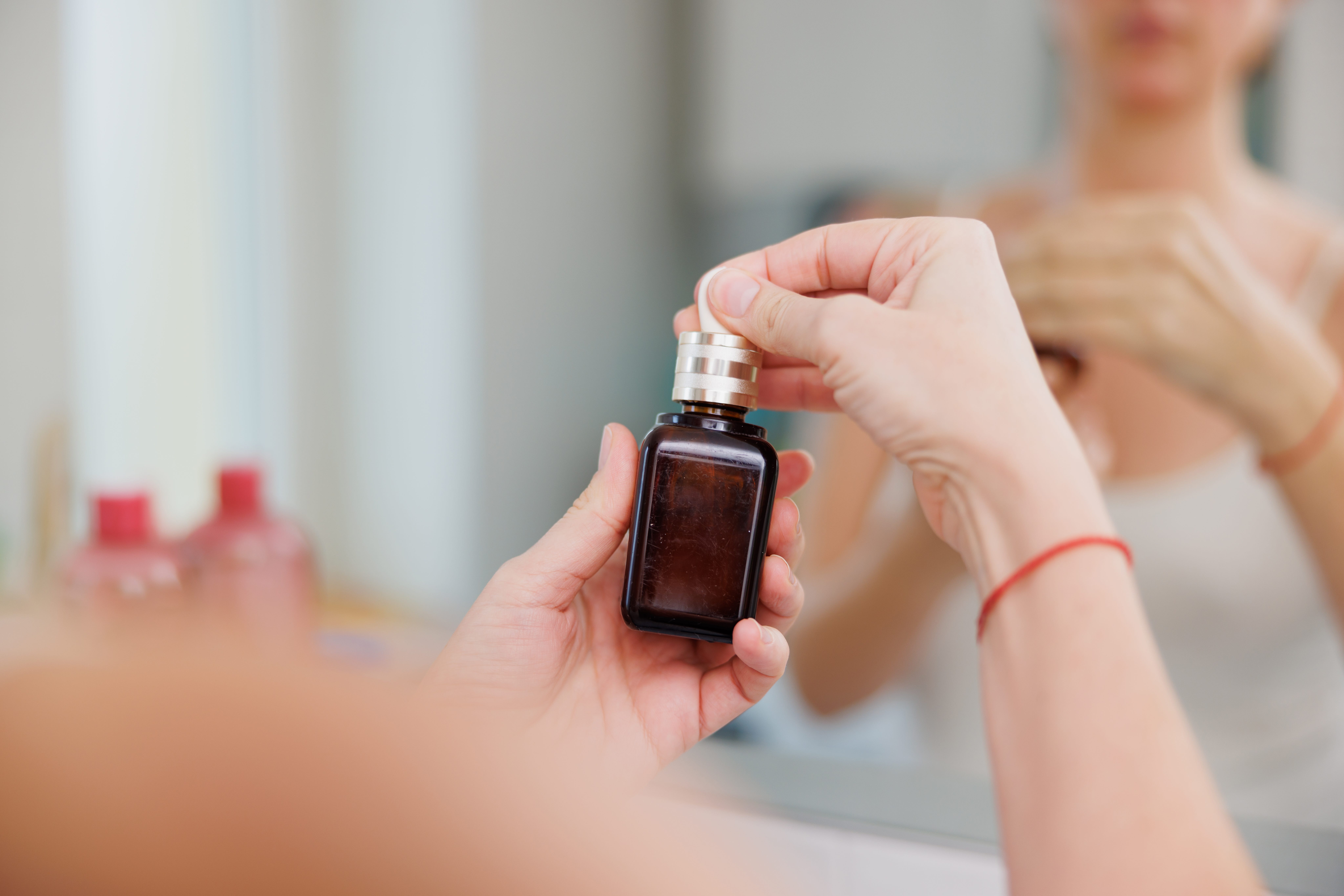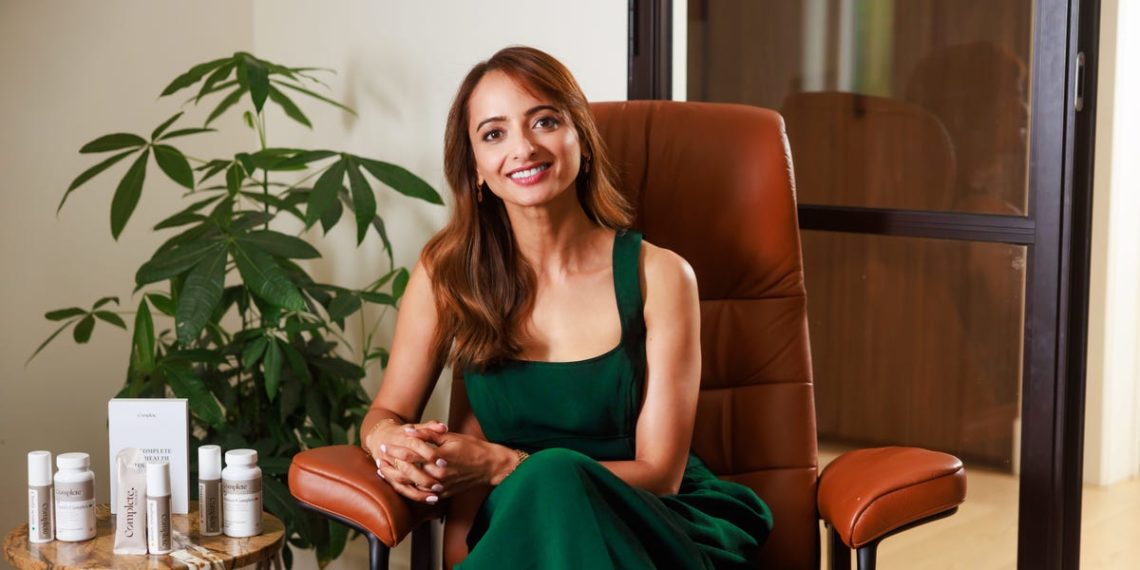
Sonal Chavda-Sitaram
- A pharmacist with a skincare Ph.D. says that leading a healthy lifestyle is crucial for skin health.
- Sonal Chavda-Sitaram keeps her skincare routine simple so she can be consistent with it.
- Chavda-Sitaram uses a high-strength vitamin C serum in the morning for brightening.
Sonal Chavda-Sitaram takes a double-pronged approach to supporting her skin health as she ages.
The 43-year-old pharmacist, who completed her Ph.D. in topical products like serums and masks at King’s College in London, loves her lotions and potions, but believes that good sleep, a healthy diet, exercise, and minimizing stress are all equally non-negotiable for skin health.
“We’ve really disregarded the largest organ within our body and the most complex, and are only treating surface level,” Chavda-Sitaram told Business Insider. “We need to treat it much more holistically.”
When creating her skincare routine, the mom of two and founder of Complete by Dr SCS, a skincare range that combines topical products with supplements, looks at what she needs to do both internally and externally to keep her skin radiant.
“Every time I build something, it’s about laying the foundations right and thinking, ‘What do I need as a foundation?’, and then ‘How do I support that with my topical needs?'” she said.
To see results, it’s important to be consistent, Chavda-Sitaram said. “I just need it to be as simple as possible. It needs to integrate into my lifestyle, which is very chaotic,” she said.
Chavda-Sitaram shared the four skincare products she uses daily.

Sonal Chavda-Sitaram
Vitamin C
In the morning, Chavda-Sitaram uses a high-strength vitamin C serum to brighten her skin.
“It’s an antioxidant, so it prevents oxidative damage from environmental stresses like pollution, et cetera. But then it also helps increase that skin glow so your skin looks more radiant and you’ve got that sort of coveted glow that everyone looks for,” she said.
Research suggests that applying vitamin C to the skin might have antiaging effects, as it is thought to promote collagen production, the primary building block of skin that we naturally make less of as we age. There is also some evidence that vitamin C can reduce the appearance of dark spots associated with aging and help protect against sun damage.
Chavda-Sitaram suggests finding a vitamin C product packaged in an airless pump or airtight container, as it is highly unstable and easily degraded if exposed to oxygen. “Essentially what you will get is this yellowy darkening of the vitamin C serum, which you’ll know has degraded,” meaning it loses its potency, she said.
She also looks for a vitamin C serum that contains other antioxidants such as vitamin E and ferulic acid, as they help stabilize it. She uses Complete by Dr SCS Radiance Face Serum, a serum from her own range that contains 20% tetrahexyldecyl ascorbate, a stable form of vitamin C, and antioxidants.
SPF

wing-wing/Getty Images
Chavda-Sitaram applies a factor 50 SPF with UVA and UVB ray coverage every morning, and multiple times throughout the day.
“One of the biggest mistakes I see is that you apply it in the morning, usually at 8 or 9 a.m., and then you’re out all day, and then midday comes, you haven’t applied any sunscreen; whatever you may have applied in the morning has probably been rubbed off. And then you’ve exposed your skin to sunlight,” she said.
Sun damage can prematurely age the skin, resulting in wrinkles, liver spots, and decreased elasticity, and can lead to skin cancer. “So trying to make sure that you protect your skin from the sun rays is going to be critical,” Chavda-Sitaram said.
She recommended using any type of sunscreen — be it mineral or chemical — that you will be consistent with. Chavda-Sitaram is still on the hunt for her perfect SPF product.
Retinol
Chavda-Sitaram is a fan of retinol, a form of vitamin A used in many skincare products. Originally a treatment for acne, retinol is now used for a laundry list of skin concerns, from psoriasis to fine lines and wrinkles.
Chavda-Sitaram applies her retinol nightly with a ceramide-rich moisturizer, as it can cause skin dryness, and her skin is naturally on the drier side. She uses Weleda Skin Food Face Night Cream.
Retinol comes in many forms and concentrations, but Chavda-Sitaram is most excited about a retinal derivative called hydroxypinacolone retinoate (HPR). “Retinol works by binding to retinoic acid receptors and increasing cell turnover, so stimulating collagen production. So you want a retinol that is easily converted to these receptors,” she said. HPR has a small conversion step.
Retinol can cause skin irritation and inflammation, so it’s best to build up your usage slowly, but studies suggest that HPR is generally well-tolerated, she said.
She uses Complete by Dr SCS Protect Serum, which contains HPR.

zoranm/Getty Images
Fragrance-free cleanser
Before applying any active ingredients to her skin, Chavda-Sitaram cleanses using a fragrance-free and denatured alcohol-free cleanser. She uses CeraVe’s Hydrating Cleanser morning and night.
Over time, fragrances and additives can strip the skin of its naturally moisturizing oils, cause minor irritations, and sensitivities to other products, she said.
“You want something that doesn’t strip away the oils on the surface of your skin. You want it to effectively remove, but you don’t want it to damage your skin barrier, and that’s really critical,” Chavda-Sitaram said.
Read the original article on Business Insider
The post A 43-year-old pharmacist with a Ph.D. in topical skincare says she uses 4 products to keep her glow as she ages appeared first on Business Insider.




